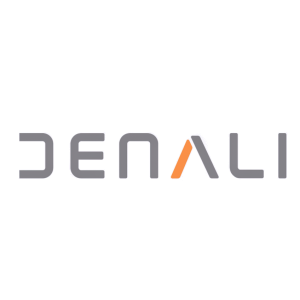Denali Therapeutics Announces Primary Analysis and Long-Term Follow-Up of Phase 1/2 Study in Hunter Syndrome (MPS II) with Tividenofusp Alfa
Rhea-AI Summary
Denali Therapeutics (NASDAQ: DNLI) announced primary analysis results from its Phase 1/2 study of tividenofusp alfa (DNL310) in 47 Hunter syndrome (MPS II) participants, along with long-term follow-up data. The study demonstrated sustained biomarker normalization and improvements in hearing, cognition, and adaptive behavior.
The treatment was generally well-tolerated over a median follow-up of two years, extending to more than four years. Most treatment-related adverse events were mild or moderate, with serious events occurring in 6.4% of participants. The company plans to submit a biologics license application (BLA) for accelerated approval in early 2025, targeting a potential launch in late 2025 or early 2026.
Key outcomes included normal liver volume after 24 weeks, hearing threshold improvements across all tested frequencies, and skill gains in most participants. The treatment led to significant reductions in central nervous system and peripheral biomarkers of disease, including CSF and urine heparan sulfate, and neurofilament light.
Positive
- Received Breakthrough Therapy designation
- Plans for BLA submission in early 2025 with potential launch by early 2026
- Demonstrated sustained biomarker normalization and clinical improvements
- Treatment showed positive results in hearing, cognition, and behavior
- Generally well-tolerated safety profile with mostly mild/moderate adverse events
Negative
- Serious treatment-related adverse events occurred in 6.4% of participants
- One participant discontinued treatment due to adverse events
News Market Reaction
On the day this news was published, DNLI declined 4.49%, reflecting a moderate negative market reaction.
Data tracked by StockTitan Argus on the day of publication.
- Long-term data demonstrate that robust reductions and normalization in key biomarkers from baseline were maintained over time with continued improvement in hearing, cognition and adaptive behavior
- Long-term safety data with median follow-up of two years, and out to more than four years, demonstrate that tividenofusp alfa was generally well tolerated
- Regulatory submission for accelerated approval is planned for early 2025; U.S. launch preparation is ongoing to deliver tividenofusp alfa to families with MPS II in late 2025 or early 2026
SOUTH SAN FRANCISCO, Calif., Feb. 06, 2025 (GLOBE NEWSWIRE) -- Denali Therapeutics Inc. (NASDAQ: DNLI), today announced the primary analysis of the Phase 1/2 study in 47 participants with Hunter syndrome (MPS II) in the 24-week treatment period and additional long-term follow-up of its investigational therapeutic tividenofusp alfa (DNL310). These data, along with recent Breakthrough Therapy designation, further support the company’s plan to submit a biologics license application (BLA) in early 2025 for accelerated approval and deliver this potential treatment to the Hunter syndrome community in late 2025 or early 2026. The Phase 1/2 results are being presented this week at the 21st Annual WORLDSymposium™ conference in San Diego, California.
“Longer-term clinical data add to confidence that normalization of key biomarkers endures over time and that treatment with tividenofusp alfa is associated with continued improvement in hearing, cognition and behavior, which is meaningful to affected individuals and their families,” said Joseph Muenzer, M.D., Ph.D., Director of the Muenzer MPS Center and Professor in Pediatric Genetics at the University of North Carolina at Chapel Hill School of Medicine as well as an investigator in the Phase 1/2 study. “I look forward to new treatment options urgently needed by the Hunter syndrome community that effectively address the full spectrum of the disease.”
“Our primary analysis in 47 participants with MPS II and the additional long-term data in up to more than four years, support the potential of tividenofusp alfa to address neurocognitive, behavioral, and physical effects for all individuals living with MPS II. We are working as fast as possible to enable tividenofusp alfa as a treatment option for individuals living with MPS II and enable access for them and their families,” said Carole Ho, M.D., Chief Medical Officer of Denali. “We expect the progress achieved in our Hunter syndrome program to inform and accelerate additional therapeutics programs in our lysosomal storage disease portfolio, including Sanfilippo syndrome Type A (MPS IIIA).”
The additional Phase 1/2 long-term data demonstrated that treatment with tividenofusp alfa led to substantial and significant reductions to normal and near-normal levels in central nervous system and peripheral biomarkers of disease, including cerebrospinal fluid (CSF) and urine heparan sulfate, and neurofilament light (NfL), a well-established marker of neurodegeneration. Clinical outcomes included normal liver volume after 24 weeks, hearing threshold improvement in all tested frequencies, and skill gains in most participants on measures of adaptive behavior and cognition. Administration of tividenofusp alfa was generally well tolerated in study participants. Most treatment-related adverse events (TEAEs) were mild or moderate, including infusion-related reactions (IRRs), anemia, vomiting, pyrexia, respiratory infections, and rash. Serious TEAEs in three participants (
Denali also supported additional research relating to Hunter syndrome (MPS II) at the WORLDSymposium™ conference. Research presented by Barbara Burton, M.D., Professor of Pediatrics, Genetics, Genomics and Metabolism at Feinberg School of Medicine in Chicago identified unmet needs including limitations of existing treatments across disease manifestations and the challenges in care associated with diagnosis and continuation of care. Denali researchers also presented research at the conference demonstrating that age-based levels of CSF and urine biomarkers in Hunter syndrome (MPS II) were elevated above biomarker levels at pediatric age-based reference intervals.
About Hunter Syndrome (MPS II)
Hunter syndrome (MPS II) is a rare genetic disease that affects over 2,000 individuals in commercially accessible geographies, primarily males, and leads to physical, cognitive, and behavioral symptoms. Hunter syndrome is caused by mutations in the iduronate-2-sulfatase (IDS) gene, which leads to a deficiency of the IDS enzyme. Symptoms often begin emerging around age two and include physical complications, including organ dysfunction, joint stiffness, hearing loss and impaired growth, and neurocognitive symptoms with impaired development. The disease is characterized by a buildup of glycosaminoglycans (GAGs) in lysosomes — the part of the cell that breaks down materials including GAGs. The current standard of care, enzyme replacement therapy, partially treats physical symptoms but does not cross the blood-brain barrier, and as a result, cognitive and behavioral symptoms experienced by the majority of individuals with Hunter syndrome are not addressed. Therapies that address the range of behavioral, cognitive, and physical manifestations of the disease are recognized as an unmet need for the Hunter syndrome community.1
About Tividenofusp Alfa and the Phase 2/3 COMPASS Study
Tividenofusp alfa (or DNL310) is composed of the iduronate 2-sulfatase (IDS) enzyme fused to Denali’s proprietary Enzyme TransportVehicle™ (ETV), uniquely designed to deliver IDS into the brain and the body, with the goal of addressing behavioral, cognitive, and physical symptoms of Hunter syndrome (MPS II). The U.S. Food and Drug Administration has granted Fast Track and Breakthrough Therapy designations to tividenofusp alfa for development in the treatment of Hunter syndrome (MPS II). The European Medicines Agency has granted Priority Medicines designation to tividenofusp alfa.
The Phase 2/3 COMPASS study is enrolling participants with MPS II in North America, South America, and Europe to support global approval. Participants are randomized 2:1 to receive either tividenofusp alfa or idursulfase, respectively. Enrollment of the planned 33 participants with neuronopathic MPS II in Cohort A has been completed; Denali has increased the sample size of Cohort A by nine participants, bringing the total to 42 participants. Cohort B continues to enroll participants with non-neuronopathic MPS II. More information about the COMPASS study can be found here.
Tividenofusp alfa is an investigational therapeutic candidate and has not been approved for use by any Health Authority.
About Denali Therapeutics
Denali Therapeutics is a biopharmaceutical company developing a broad portfolio of product candidates engineered to cross the blood-brain barrier for neurodegenerative diseases and lysosomal storage diseases. Denali pursues new treatments by rigorously assessing genetically validated targets, engineering delivery across the blood-brain barrier and guiding development through biomarkers that demonstrate target and pathway engagement. Denali is based in South San Francisco. For additional information, please visit www.denalitherapeutics.com.
Cautionary Note Regarding Forward-Looking Statements
This press release contains forward-looking statements within the meaning of the Private Securities Litigation Reform Act of 1995. Forward-looking statements expressed or implied in this press release include, but are not limited to, statements regarding plans, timelines, and expectations related to Denali's TransportVehicle™ (TV) platform and its therapeutic and commercial potential; plans, timelines, and expectations relating to DNL310, including enrollment in the ongoing global Phase 2/3 COMPASS study, the likelihood of global approvals, the timing of planned regulatory filings, and the timing, likelihood, and scope of regulatory approvals and commercial launch; plans, timelines, and expectations related to DNL126; and statements made by Dr. Muenzer and Denali’s Chief Medical Officer. Actual results are subject to risks and uncertainties and may differ materially from those indicated by these forward-looking statements as a result of these risks and uncertainties, including but not limited to: Denali’s dependence on successful development of its BBB platform technology and TV-enabled product candidates; Denali’s ability to initiate and enroll patients in its current and future clinical trials; Denali’s ability to conduct or complete clinical trials on expected timelines; Denali’s reliance on third parties for the manufacture and supply of its product candidates for clinical trials; the potential for clinical trial results to differ from preclinical, early clinical, preliminary or expected results; the risk of significant adverse events, toxicities, or other undesirable side effects; the risk that results from early clinical biomarker studies will not translate to clinical benefit in late clinical studies; the risk that product candidates may not receive regulatory approval necessary to be commercialized; developments relating to Denali’s competitors and its industry, including competing product candidates and therapies; Denali’s ability to obtain, maintain, or protect intellectual property rights; and other risks and uncertainties. In light of these risks, uncertainties, and assumptions, the forward-looking statements in this press release are inherently uncertain and may not occur, and actual results could differ materially and adversely from those anticipated or implied in the forward-looking statements. Accordingly, you should not rely upon forward-looking statements as predictions of future events. Denali's product candidates are investigational, and their safety and efficacy profiles have not yet been established. No Denali product candidates have been approved by any health authority for any use. Information regarding additional risks and uncertainties may be found in Denali’s Annual and Quarterly Reports filed on Forms 10-K and 10-Q filed with the Securities and Exchange Commission (SEC) on February 28, 2024, and November 6, 2024, respectively, and Denali’s future reports to be filed with the SEC. Denali does not undertake any obligation to update or revise any forward-looking statements, to conform these statements to actual results or to make changes in Denali’s expectations, except as required by law.
References
- Muenzer, J., et al. Community consensus for Heparan sulfate as a biomarker to support accelerated approval in Neuronopathic Mucopolysaccharidoses. Mol Genet Metab. 2024 Aug;142(4):108535
Investor Contact
Laura Hansen, Ph.D.
Vice President, Investor Relations
(650) 452-2747
hansen@dnli.com
Media Contact
Rich Allan
FGS Global
(503) 851-0807
rich.allan@fgsglobal.com








